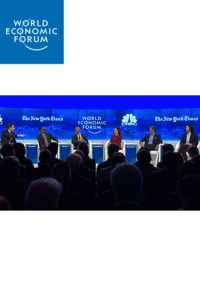Join getAbstract to access the summary!

Join getAbstract to access the summary!
Sheryl Sandberg, Andrew R. Sorkin, Satya Nadella, Paul Kagame, Anand Mahindra and Zachary Bookman
The Transformation of Tomorrow
World Economic Forum, 2016
What's inside?
Will the fourth industrial revolution generate a “digital dividend” or a “digital divide”?
Recommendation
The fourth industrial revolution is transforming the global economy and shining a light on several yawning dichotomies: hope versus fear, the haves versus the have nots, and “digital dividends” versus “digital divides.” These issues fueled a lively debate for a stellar panel of guests at 2016’s World Economic Forum. getAbstract recommends the experts’ optimistic – though meandering – discussion to the world’s government, corporate and NGO leaders.
Summary
About the Speakers
Andrew Sorkin is a New York Times columnist. Paul Kagame is the president of Rwanda. Satya Nadella is CEO of Microsoft. Sheryl Sandberg is COO of Facebook. Anand Mahindra is the chairman of Mahindra Group. Zachary Bookman is the CEO of OpenGov, which offers technology solutions to local governments.






















Comment on this summary